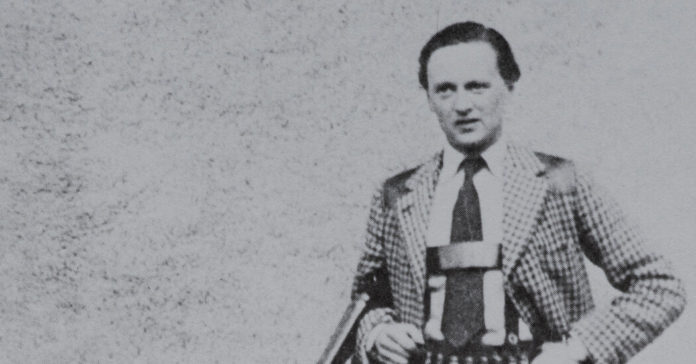
“Male-line primogeniture,” the British law guaranteeing that particular titles and land pass via inheritance through male heirs, has long been a foundational power grab for British men, and is, remarkably, still being debated in the case of some titled lines within the aristocracy. With his male gender certified on his birth certificate, Forbes was in a position to inherit his father’s estate. But there was one obstacle: his cousin John.
According to the terms of Forbes’s father’s will, his estate and title (a baronetcy) passed to Forbes’s older brother, William, and, at his death, to his male offspring. In the event William had no sons (as was the case), the estate and title would pass to Forbes’s father’s brother or, if he had died, his male heir: John. Abetted by Forbes’s older sister, Margaret, who had a fraught relationship with Forbes and agreed to attest to his female status at birth, John filed a legal claim to the baronetcy. Reluctantly, Forbes decided to file a counterclaim. Not to do so, Playdon writes, “would be tantamount to stating that he was not the next heir because he was not a man.” (In an effort to placate John, Forbes had already handed over much of his father’s estate.)
Before the title contest could play out in court, however, Margaret, a lesbian who lived with her female partner and was thus subject to the same indignities and threats that her brother wanted to avoid, reconciled with him and prevailed on John to agree to let the hearing take place in private.
Playdon sees Margaret’s initial alliance with John as a betrayal, but Forbes’s lack of solidarity with his sister’s gender and sexual exclusion could be described in similar terms. Apparently it never occurred to him to protest Margaret’s own inability as a woman to claim either the estate or the title. She was killed in a car accident a few months before the hearing took place, and in 1968 the baronetcy was awarded to her brother.
Britain’s system of common law is based on the “doctrine of precedent”; one key legal judgment affects all subsequent related decisions. So having all judgments publicly available is necessary for British people to know what rights they can rely on. However, because Forbes’s case — including the traumatic and humiliating process of having to provide evidence of his maleness in court — was heard in closed session before a single judge, the decision failed to be recognized as the precedent it should have been, becoming unavailable to future generations of trans people who found themselves in a similar predicament. In 2004, Britain passed the Gender Recognition Act, allowing citizens to change their gender. But rather than authorizing corrections to the original birth certificate, the law calls for the issuing of a second birth certificate, made out in the “acquired gender.” The implication, Playdon writes, is that “trans people are masquerading as real people, just as their faux birth certificates are masquerading as real ones.”
In other words, the victory Forbes won more than 50 years ago has yet to fully translate to the lives of those who followed him. In the end, his inspiring and impressive commitment to self-define coexists with his failure to imagine the equality of women, including lesbians, in his own time, or how future trans people could have benefited from knowledge of his struggle — and his achievement.







